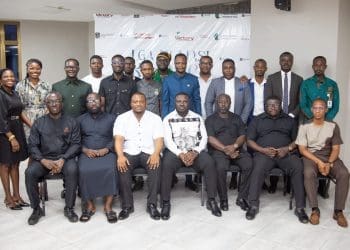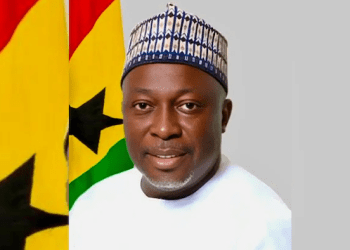The University Teachers Association of Ghana (UTAG) has elected Professor Vera Fiador, a Senior Lecturer at the University of Ghana Business School, as its new National President.
Her election was confirmed at the Association’s 22nd Biennial Congress held in Aburi.
She will be joined by Reverend Dr. Ebenezer T. Amanor-Lartey as Vice President, Professor Gladys A.A. Nabieu as Treasurer, Dr. Samuel Segla as Secretary, and Dr. Rosemary Anderson Akolaa as Women’s Commissioner. The new executive will serve a two-year term in line with UTAG’s constitution.
This year’s congress was held under the theme: “Rethinking Higher Education Pedagogy and Funding in the Age of AI: Ethics, Equity and Development Impact.”
In her acceptance speech, Prof. Fiador expressed gratitude to members for the confidence reposed in her leadership and pledged to work with all stakeholders to advance the welfare of lecturers.
She assured Ghanaians that UTAG would continue to play its role in shaping higher education and producing graduates capable of contributing to national development and beyond.
Prof. Fiador stressed the importance of data-driven research in policymaking, urging that academic work must not be left on shelves but translated into impactful results.
“We look forward to working collectively with stakeholders to transform research into impactful outcomes,” she said.

She also called for a candid, non-partisan national conversation on sustainable development, emphasising that universities require reliable funding to carry out their core responsibilities effectively.
According to her, securing sustainable financing for tertiary institutions would enhance their ability to deliver quality education and conduct meaningful research.
The new UTAG President further pledged to strengthen collaboration between academia and industry to align teaching and research with the needs of the job market, thereby contributing to socio-economic development.
Touching on national issues, Prof. Fiador acknowledged the growing environmental threat of illegal mining and assured that UTAG would deliberate on the matter and make its voice heard.
“We need to work together to improve the fortunes of the Association. We need to be a Republic of ideas and live with action to solve societal problems,” she said.
Her election marks a new chapter in UTAG’s leadership, as the association continues to push for improved conditions of service for lecturers and reforms in higher education financing, research, and pedagogy.













